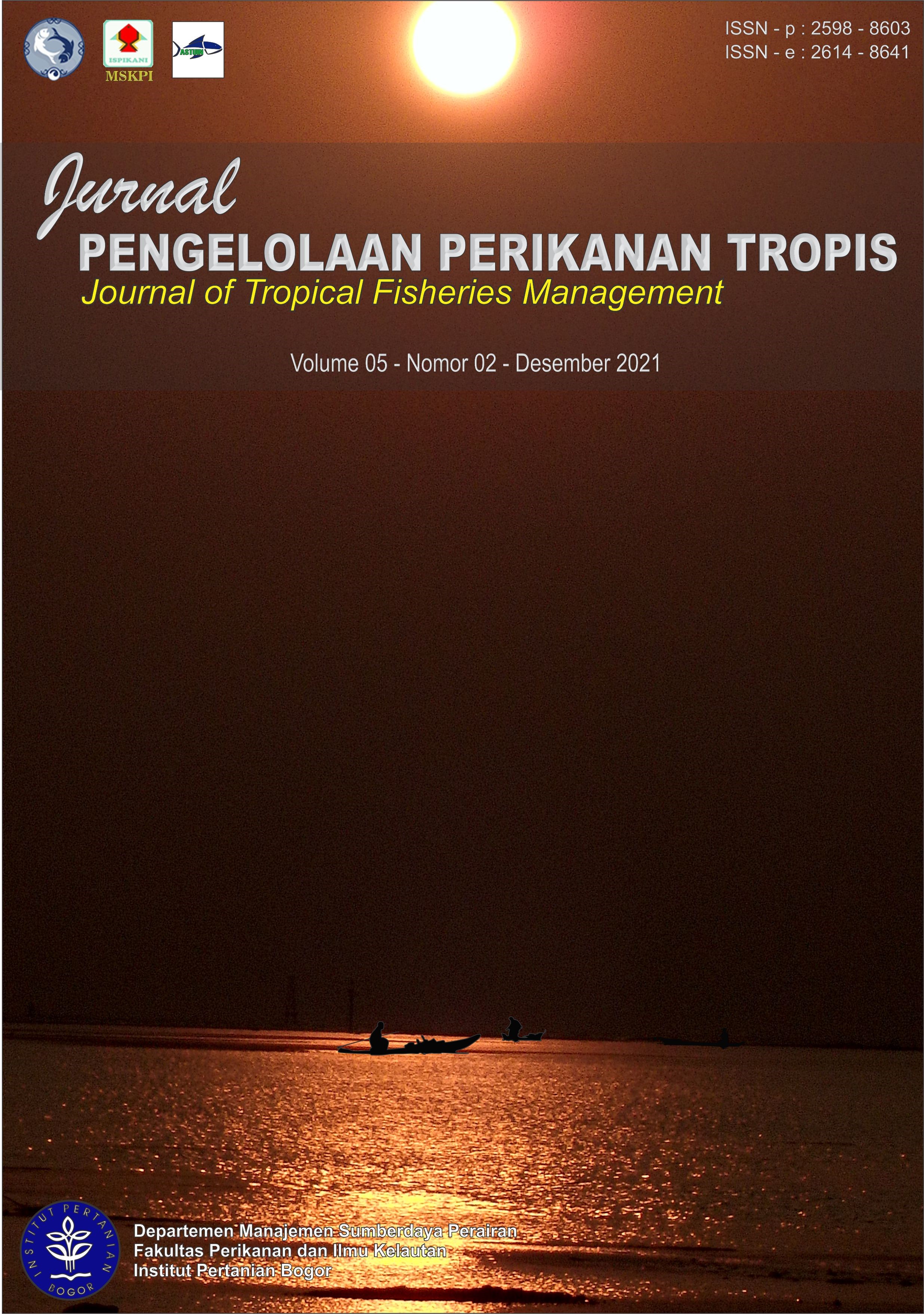Model for Estimating Residents' Behavior in Disposing of Garbage in the Cisadane River
Model Penduga Perilaku Warga Membuang Sampah di Sungai Cisadane
Abstract
Solid waste disposed from land that enters the oceans through rivers that do not go through TPA and TPS facilities, is not officially managed, resulting in an uncontrolled and unmanaged. Efforts to reduce the volume of waste in several places are closely related to community behavior, an effort to raise awareness and increase understanding is needed to encourage behavioral change that is carried out in stages, either through promotion or dissemination or continuous campaigning. This study aims to determine the decisions of residents who live on the edge of the Ciadane river regarding their daily habit of disposing of garbage. The method used is a survey to the research location and data collection through interviews with a questionnaire guide. Questionnaires will be deployed to represent settlements around the river and villages that are traversed by the cisadane river. The research sample was taken randomly / representing residents who lived on the riverbank as many as 120 respondents to represent the upstream, middle and downstream areas. Identifying factors that influence the decision to dispose of waste into the river were analyzed using ordinal logistic regression. The results of the ordinal logistic regression test showed partial simultaneous selection of TPS availability factors, TPS conditions, the role of community leaders and the impact of river waste showed a significant positive effect on the factors that influence the behavior of throwing garbage into the Cisadane river.
Downloads
References
Beni MT, Arjana IGB, Ramang R. 2014. Pengaruh faktor-faktor sosial-ekonomi terhadap perilaku pengelolaan sampah domestik di Nusa Tenggara Timur. Jurnal Ilmu Lingkungan. 12 (2): 105-117.
Dwiyanti DS, Rustam A, Anastasia RTDK, Rahmania R, Mbay LN, Salim HL, Sudirman N. 2020. Metodologi Identifikasi Sampah dan Model Pengelolaan Sampah Berbasis Sosio-Engineering. [Webinar Model Sinergitas Pengelolaan Sampah Laut Indoensia Berbasis Sosio-Engineering, 27 Agustus 2020]. Jakarta (ID): Pusat Riset Kelautan, Badan Riset dan Sumberdaya Manusia Kelautan Perikanan, Kementrian Kelautan dan Perikanan. [diunduh tanggal 27 Agustus 2020]. Tersedia pada pusriskel.litbang.kkp.go.id
Febriani L, Siregar YI, Putra RM. 2020. Analisis pengelolaan sampah rumah tangga berbasis masyarakat di Kecamatan Marpoyan Damai Kota Pekanbaru. Jurnal Photon. 11(1): 1-11.
Firdaus M, Harmini, Farid MA. 2013. Aplikasi Metode Kuantitatif untuk Manajemen dan Bisnis. Bogor (ID): IPB Press.
Harlan J. 2018. Analisis Regresi Logistik. Depok (ID): Gunadarma University.
Hair JF, William C, Berry JB, Babin, Rolp E, Anderson. 2010. Multivariate Data Analysis. Pearson Prentice Hall (US). Sevent Edition.
Hariyadi S, Adiwilaga EM, Pratono T, Hardjoamidjojo S, Damar A. 2010. Produktivitas primer estuari Sungai Cisadane pada musim kemarau. Jurnal Limnotek. 17 (1): 49-57.
Hosmer D, Lemeshow S. 2000. Apllied Logistic Regressions. USA: John Wliey dan Sons.
Kotimah MK, Wulandari SP. 2014. Model regresi logistik biner stratifikasi pada partisipasi ekonomi perempuan di Provinsi Jawa Timur. Jurnal Sains dan Seni Pomites. 3(1):2337-3520.
Lestari K, Titah MJP. 2017. Analisis regresi logistik untuk mengetahui faktor yang berpengaruh terhadap frekuensi ibu rumah tangga dalam mengelola sampah rumah tangga di Dusun Cabakan Sumberadi Mlati Sleman Yogyakarta. Jurnal Statistika Industi dan Komputasi. 1(2): 31-40.
McKinsey. 2015. Stemming the tide: Land-based strategies for a plastic-free ocean. Ocean Conservacy. McKinsey Company & Company and Ocean Conservancy. Tersedia di www.mckinsey.com dan www.oceanconservancy.org
[Perpres] Peraturan Presiden Republik Indonesia. 2018. Tentang Penanganan Sampah Laut. Jakarta (ID): Perpres.
Rousta K. 2018. Household waste sorting at the source A procedure for improvement. [Thesis for the Degree of Doctoral of Philosophy]. Boras (SE): University of Boras
Copyright (c) 2021 Jurnal Pengelolaan Perikanan Tropis (Journal of Tropical Fisheries Management)

This work is licensed under a Creative Commons Attribution 4.0 International License.
After the article is submitted and published in this journal, it is fully copyrighted by the Journal of Tropical Fisheries Management. If excerpts from other copyrighted works are included, authors must obtain written permission from the copyright owner and give credit to the source in the article. Then, authors or reader is allowed to copy, share, and redistribute articles/material in any form. But it must still include the appropriate source and credit because the article in this journal is licensed by Creative Commons Attribution 4.0 International License (CC BY 4.0).



1.png)
1.png)








